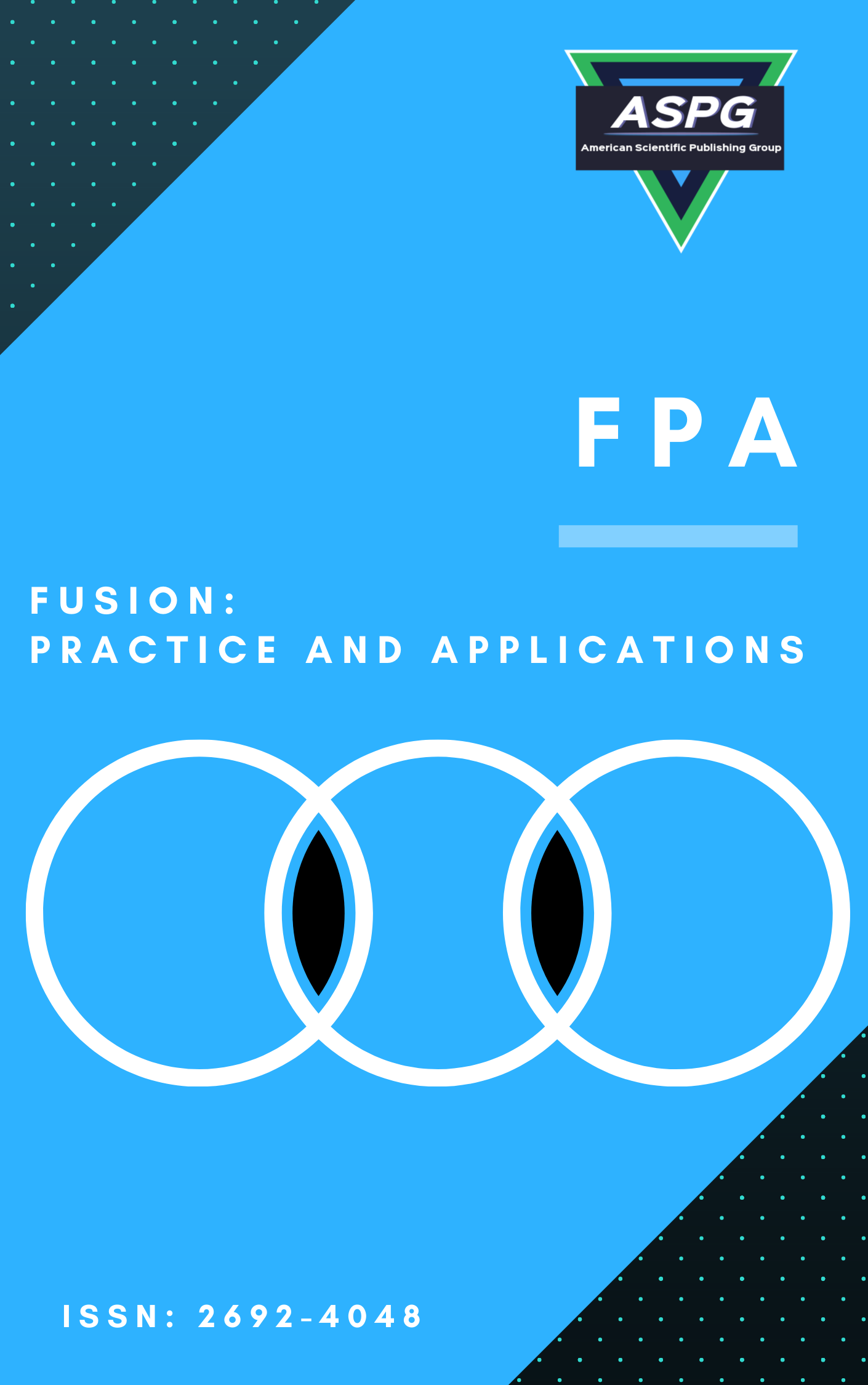

Volume 20 , Issue 2 , PP: 53-64, 2025 | Cite this article as | XML | Html | PDF | Full Length Article
Mohammed Awad Alasmrai 1 , Ramadan Mohamed Ismail 2 * , Mohammed Hasan Ali Al-Abyadh 3
Doi: https://doi.org/10.54216/FPA.200205
This paper presents a novel machine-learning framework designed to personalize Cognitive Behavioral Therapy (CBT) for adult patients by leveraging a multi-dimensional, adaptive approach. The proposed system integrates historical clinical data, real-time behavioral indicators, and contextual factors to generate a comprehensive psychological profile for each adult patient. A reinforcement learning mechanism underpins therapy selection, allowing the model to iteratively refine treatment strategies based on individual responses and therapeutic outcomes. An embedded optimization process enables dynamic adaptation of interventions, improving predictive accuracy and fostering patient-centered care. The framework incorporates a multi-factor assessment model that synthesizes psychological, behavioral, and physiological variables to enhance therapeutic effectiveness, sustainability, and responsiveness to change. Comparative evaluations demonstrate that this approach outperforms traditional CBT planning methods, as well as existing deep learning, hybrid, and reinforcement-based models, in terms of accuracy, interpretability, computational efficiency, and patient outcome optimization for adults. Furthermore, the system emphasizes fairness and equity in treatment personalization, supporting real-time clinical decision-making while minimizing ineffective therapeutic pathways. This research underscores the transformative potential of machine learning in mental health care by enabling scalable, data-driven, and continuously improving interventions tailored to the nuanced needs of adult patients undergoing CBT.
Adaptive learning , Adult Cognitive behavioral therapy , Data-driven therapy , Iterative optimization , Machine learning , Mental healthcare , Patient-centered outcomes , Personalization , Reinforcement learning , Therapy recommendation
[1] World Health Organization, "Depression," 2018. [Online]. Available: https://www.who.int/news-room/fact-sheets/detail/depression. Accessed: Nov. 21, 2019.
[2] World Health Organization, The Global Burden of Disease: 2004 Update, Geneva, Switzerland: WHO, 2008. [Online]. Available: https://www.who.int/healthinfo/global_burden_disease/2004_report_update/en/. Accessed: Oct. 3, 2019.
[3] L. Kemmeren, D. J. Van Schaik, H. Riper, A. M. Kleiboer, J. E. Bosmans, and J. H. Smit, "Effectiveness of blended depression treatment for adults in specialised mental healthcare: Study protocol for a randomised controlled trial," BMC Psychiatry, vol. 16, p. 113, 2016.
[4] T. B. Karasu, A. Gelenberg, A. Merriam, and P. Wang, "Treatment of patients with major depressive disorder," in American Psychiatric Association Practice Guidelines for the Treatment of Psychiatric Disorders Compendium, Washington, DC, USA: American Psychiatric Publishing, 2000, pp. 413–495.
[5] P. Cuijpers, "Psychotherapies for adult depression: Recent developments," Curr. Opin. Psychiatry, vol. 28, pp. 24–29, 2015.
[6] P. Carlbring, G. Andersson, P. Cuijpers, H. Riper, and E. Hedman-Lagerlöf, "Internet-based vs. face-to-face cognitive behavior therapy for psychiatric and somatic disorders: An updated systematic review and meta-analysis," Cognit. Behav. Ther., vol. 47, pp. 1–18, 2018.
[7] R. Kashyap, "Machine Learning, Data Mining for IoT-Based Systems," in Research Anthology on Machine Learning Techniques, Methods, and Applications, Information Resources Management Association, Ed. IGI Global, 2022, pp. 447-471. doi: 10.4018/978-1-6684-6291-1.ch025.
[8] D. Pathak, "Neural correlate-based e-learning validation and classification using convolutional and long short-term memory networks," Traitement du Signal, vol. 40, no. 4, pp. 1457-1467, 2023. doi: 10.18280/ts.400414.
[9] D. M. Bavkar and V. Khairnar, "Multimodal sarcasm detection via hybrid classifier with optimistic logic," Journal of Telecommunications and Information Technology, no. 3, pp. 97-114, 2022.
[10] T. Krieger et al., "Evaluating an e-mental health program (‘deprexis’) as adjunctive treatment tool in psychotherapy for depression: Design of a pragmatic randomized controlled trial," BMC Psychiatry, vol. 14, p. 285, 2014.
[11] I. B. Hickie et al., "Practitioner-supported delivery of internet-based cognitive behaviour therapy: Evaluation of the feasibility of conducting a cluster randomised trial," Med. J. Aust., vol. 192, pp. S31–S35, 2010.
[12] R. S. Høifødt et al., "The clinical effectiveness of web-based cognitive behavioral therapy with face-to-face therapist support for depressed primary care patients: Randomized controlled trial," J. Med. Int. Res., vol. 15, p. e153, 2013.
[13] D. Kessler et al., "Therapist-delivered Internet psychotherapy for depression in primary care: A randomised controlled trial," Lancet, vol. 374, pp. 628–634, 2009.
[14] L. C. Kooistra et al., "Blended vs. face-to-face cognitive behavioural treatment for major depression in specialized mental health care: Study protocol of a randomized controlled cost-effectiveness trial," BMC Psychiatry, vol. 14, p. 290, 2014.
[15] T. L. G. Health, "Mental health matters," Lancet Glob. Health, vol. 8, p. e1352, 2020.
[16] World Health Organization, The WHO Special Initiative for Mental Health (2019–2023): Universal Health Coverage For Mental Health, Geneva, Switzerland: WHO, 2019.
[17] WHO, International Classification of Diseases, Geneva, Switzerland: WHO, 1992.
[18] American Psychiatric Association, Diagnostic and Statistical Manual of Mental Disorders, 5th ed., Washington, DC, USA: American Psychiatric Publishing, 2013.
[19] N. E. Hundt et al., "The relationship between use of CBT skills and depression treatment outcome: A theoretical and methodological review of the literature," Behav. Ther., vol. 44, pp. 12–26, 2013.
[20] M. Oud et al., "Effectiveness of CBT for children and adolescents with depression: A systematic review and meta-regression analysis," Eur. Psychiatry, vol. 57, pp. 33–45, 2019.
[21] A. L. Sigurvinsdóttir et al., "Effectiveness of cognitive behavioural therapy (CBT) for child and adolescent anxiety disorders across different CBT modalities and comparisons: A systematic review and meta-analysis," Nord. J. Psychiatry, vol. 74, pp. 168–180, 2020.
[22] B. M. Sharma, D. K. Verma, K. D. Raghuwanshi, S. Dubey, R. Nair, and S. Malviya, "Generic framework of new era artificial intelligence and its applications," in International Conference on Applied Technologies. ICAT 2023. Communications in Computer and Information Science, vol. 2049, M. Botto-Tobar, M. Zambrano Vizuete, S. Montes León, P. Torres-Carrión, and B. Durakovic, Eds. Cham: Springer, 2024. doi: 10.1007/978-3-031-58956-0_11.
[23] M. H. A. Al-Abyadh and V. T. Hoang, "Emotion AI: Cognitive behavioral therapy for teens having some mental health disorders," in Emotional AI and Human-AI Interactions in Social Networking, pp. 169-189. Academic Press, 2024.